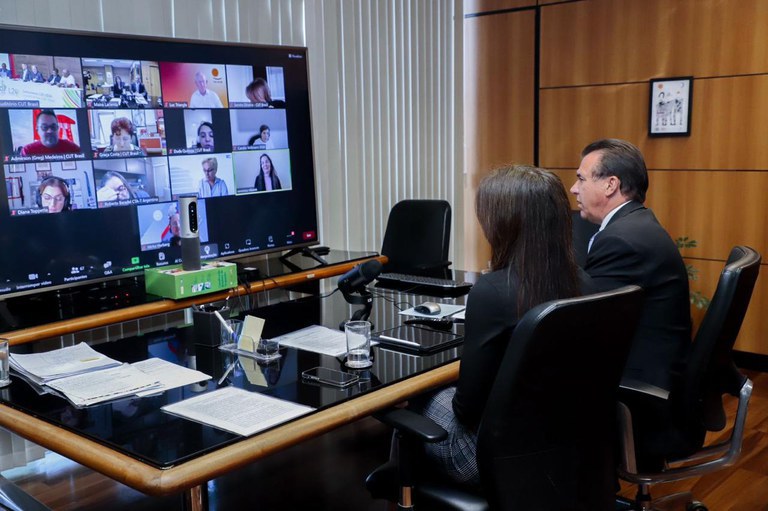Notícias
G20 English
Minister Luiz Marinho participates in the launch of Labour20 (L20) at the G20 Brazil

The Minister of Labor and Employment, Luiz Marinho, participated on this Tuesday morning (26th) in the launching ceremony of the L20 (Labour20), a group formed by unions from all over the world, to defend the interests of the working class during the activities of the G20 Brazil. The L20's work aims to register in the final document the importance of generating decent work and quality jobs as a way to fight poverty and promote social inclusion.
In Brazil, the CSB (Central of Brazilian Trade Unions), the CTB (Central of Workers of Brazil), the Central Única dos Trabalhadores (CUT), the NCST (New Trade Union Central of Workers), Força Sindical and UGT (General Union of Workers) are working together in the L20. They contribute to the elaboration of the group's union priorities, communicate demands to the Brazilian government, and participate in L20 meetings and summits. The event, anchored at the headquarters of the Central Única dos Trabalhadores (CUT), in São Paulo (SP), was conducted by Antônio Lisboa, general coordinator of the L20 in Brazil, vice-president of the ITUC (International Trade Union Confederation) and secretary of International Relations of the CUT. "The launch was very promising as it reflected the main aspirations of workers in the world at this time," said Lisboa. In his assessment, the Brazilian government's agenda is in line with the demands of the trade union movement. "Our expectation is to conquer effective space in the debates with reflections in the drafting of the final document", explained Lisboa.
"The themes indicated by the workers' representatives of the G20, the L20, for 2024, in their declaration, are a powerful synthesis of the concerns and aspirations of workers around the world," said Minister Marinho. According to him, these are fundamental issues, such as the need for a just transition to a green economy, the importance of social protection and labor rights, and the urgency of addressing inequality and job insecurity.
In Marinho's assessment, currently in Brazil, in the new mandate of President Lula, it was possible to establish a new policy of valuing the minimum wage; approve equal pay legislation for men and women, which recently had its first transparency report published; and the submission of the bill to Congress, which will guarantee rights, social security protection and safe working conditions for those who work via digital platforms.
"We did all this, contrary to what the so-called experts predicted, as well as the creation of new jobs. There has been an increase in formal employment in Brazil," Marinho said. For him, as a government focused on people, especially those who need it most, it has the duty and responsibility to fight for a better future for all. "We need to unite, strengthen and listen to all voices and defend the rights of all with determination and courage," he said. Marinho believes that this is the only way to build a fairer, more sustainable and inclusive society for present and future generations.
Ambassador Mauricio Carvalho Lyrio, Brazil's chief negotiator at the G20, spoke of the priority agendas of Brazil's presidency during the conference. "The global alliance against hunger and poverty is a priority, that is, the entire international social agenda," said Mauricio Lyrio. According to him, the issue of mobilization against climate change is how to obtain resources for energy transitions and the fight against climate change.
The L20 represents the interests of the working class by bringing together global trade unions such as the CUT and is organised by the International Trade Union Confederation (ITUC) as well as the Trade Union Consultative Committee (TUAC) for the Organisation for Economic Co-operation and Development (OECD).
The group, which has representation in the G20, has the mission of debating global economic issues and rights from the perspective of workers. It is responsible for presenting and advocating for concerns related to employment, labour rights and fair working conditions in G20 discussions.